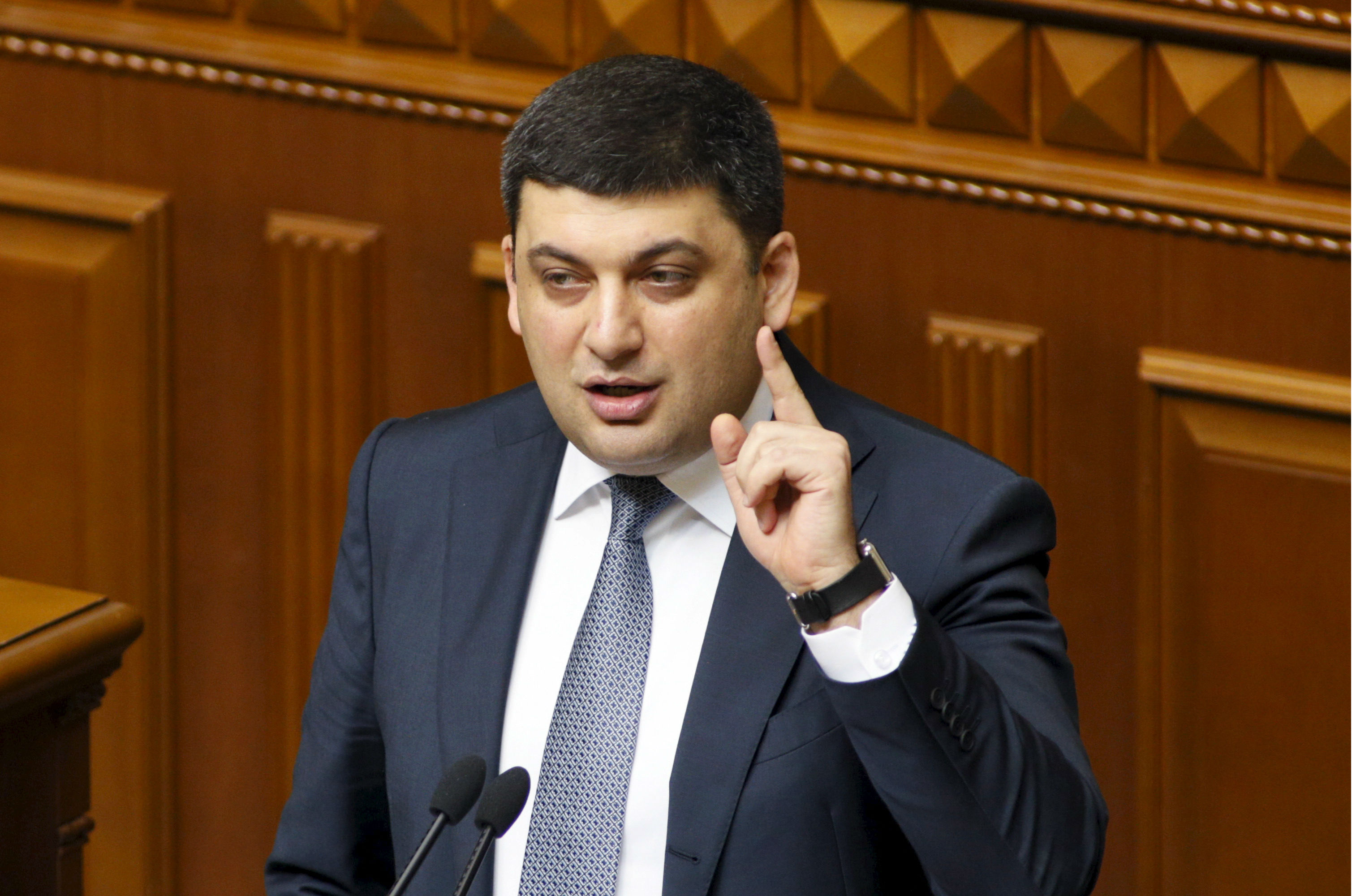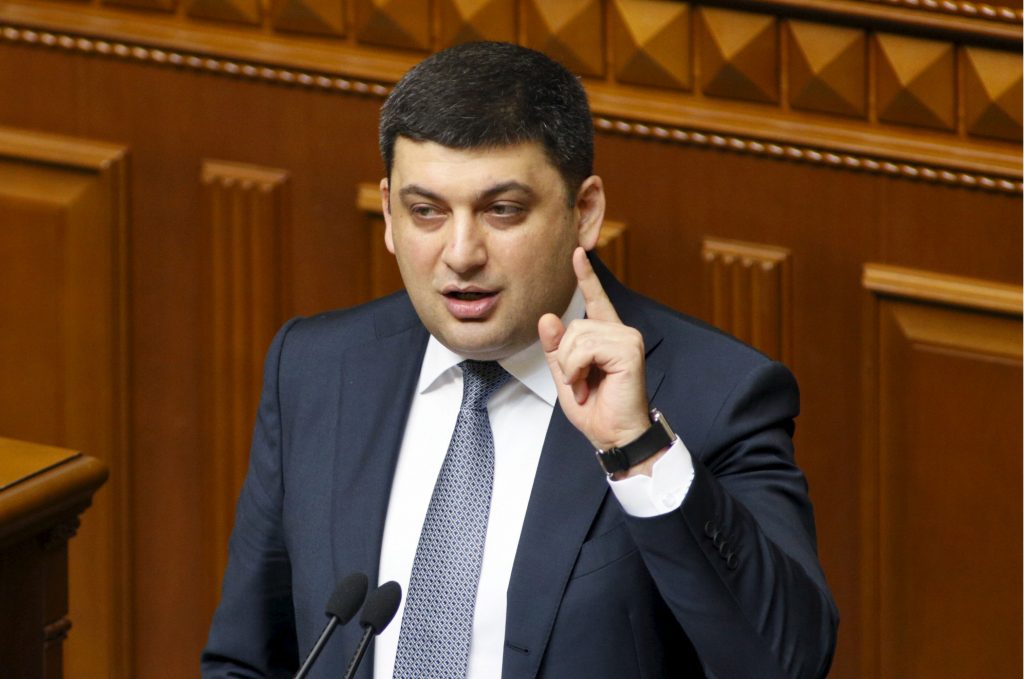 The past two months have not been favorable for Ukraine’s image in the West. The unnecessary government crisis leading to the ouster of Prime Minister Arseniy Yatsenyuk and his government has meant little progress on reform and lots of attention to politics. The strongest reform ministers—Natalie Jaresko, Aivaras Abromavicius, Oleksiy Pavlenko, and Andriy Pyvovarskiy—left with Yatsenyuk and their replacements as a whole do not have the same reform credentials. The crisis prompted the IMF to hold back delivery of its $1.63 billion tranche of economic assistance due in February, retarding Ukraine’s recovery from the sharp drops in GDP over the past two years.
The past two months have not been favorable for Ukraine’s image in the West. The unnecessary government crisis leading to the ouster of Prime Minister Arseniy Yatsenyuk and his government has meant little progress on reform and lots of attention to politics. The strongest reform ministers—Natalie Jaresko, Aivaras Abromavicius, Oleksiy Pavlenko, and Andriy Pyvovarskiy—left with Yatsenyuk and their replacements as a whole do not have the same reform credentials. The crisis prompted the IMF to hold back delivery of its $1.63 billion tranche of economic assistance due in February, retarding Ukraine’s recovery from the sharp drops in GDP over the past two years.
Yet three days in Kyiv—and meetings with numerous new and former officials—were enough to bring to mind an eternal truth about Ukraine: Things are never as bad (nor as good) as they seem. But there are at least four reasons to think that the new team may enjoy some success with reform.
First, in the weeks-long discussion of the new Prime Minister, Volodymyr Groisman, skeptics painted him as simply a functionary of the President, a misleading caricature. As a young mayor in Vinnytsia, he built a strong reputation as a reformer. In the week before he accepted the nomination as prime minister, he refused President Petro Poroshenko’s recommendations for the first deputy prime minister and some other senior positions. Groisman was signaling that he would be his own man. He has also reassured a number of reformers in the Rada and civil society of his intention to proceed with reform. Importantly, he will not follow the bad advice of some critics of the outgoing government and seek to renegotiate the IMF agreement.
Another factor in Groisman’s favor is his standing in the Rada. As speaker he established cordial relations across the parliament and should prove a more persuasive advocate than his predecessor for reform legislation. The fact that several new ministers are also fresh from the Rada may have the same effect—if they are committed to reform.
A third reason for guarded optimism is Yatsenyuk himself. He remains a critical figure in Ukrainian politics and has let it be known that he intends to support the reform program of the new government. He wants to ensure that the reforms that began on his watch are brought to fruition. This is very important because of the narrow majority that the new government enjoys. The ruling coalition consists of only Poroshenko’s and Yatsenyuk’s parties, and a smattering of “independents.” Over the past eighteen months, Yatsenyuk’s party was the most disciplined in voting for reform, which was critical to the success he enjoyed in pushing through his program. His intention to continue to use it for reform is essential in the days ahead.
The final reason for cautious optimism is the role the West and the IMF play in Ukraine. Given the legacy of the Soviet Union and twenty-five years of misrule in independent Ukraine, reform after the Euromaidan was destined to be an ugly spectacle, requiring an alliance of civil society, the young reformers to take important but second-tier positions in the Rada and the government, and the West to encourage reform at the top levels of Ukraine’s government. The IMF has made it clear from the first days of the crisis that it would not hand over the third tranche until Ukraine had a new government, Shokin was removed as the prosecutor general, and Ukraine implemented the required steps under their agreement. Moreover, Washington will only disburse its $1 billion in loan guarantees until after the IMF is satisfied.
Poroshenko and Groisman understand that without this infusion of capital, Ukraine would face a debt repayment crisis in months. They understand that it would be a disaster to accept the reckless advice of Odesa Oblast Governor Mikheil Saakashvili and dispense with the IMF program. That is why the government intends to raise gas tariffs as required by the IMF. Senior officials are saying privately that they intend to do this by May 1 after they study the subsidy program. While they believe that the safety net for the price rise may need adjustment, they are not talking about postponing or reducing the rate increase.
The gas rate rise will be an early indicator of the government’s commitment to reform. So too are plans to bring a number of bills required by the IMF to a vote in the Rada this week. The vote will also be an early test of whether the prime minister’s persuasive skills in parliament are strong enough to offset his small and fractious majority.
That small and fractious majority is not a reason for optimism on reform. Neither is the fact that the two former deputy prosecutor generals associated with reform, Vitaliy Kasko and David Sakvarelidze, were sacked and are currently under investigation. That is just the latest indicator that, even with the tardy firing of Shokin, no real steps have been taken to reform the Prosecutor General’s Office or the judiciary. While Poroshenko can take credit for some serious reform since assuming the presidency, it is past time for him to begin reform in these two critical institutions.
John E. Herbst is Director of the Atlantic Council’s Dinu Patriciu Eurasia Center. He served as US Ambassador to Ukraine from 2003 to 2006.
Image: Ukrainian Parliament Speaker Volodymyr Groisman addresses deputies at the parliament in Kyiv, Ukraine, April 14, 2016. REUTERS/Valentyn Ogirenko
